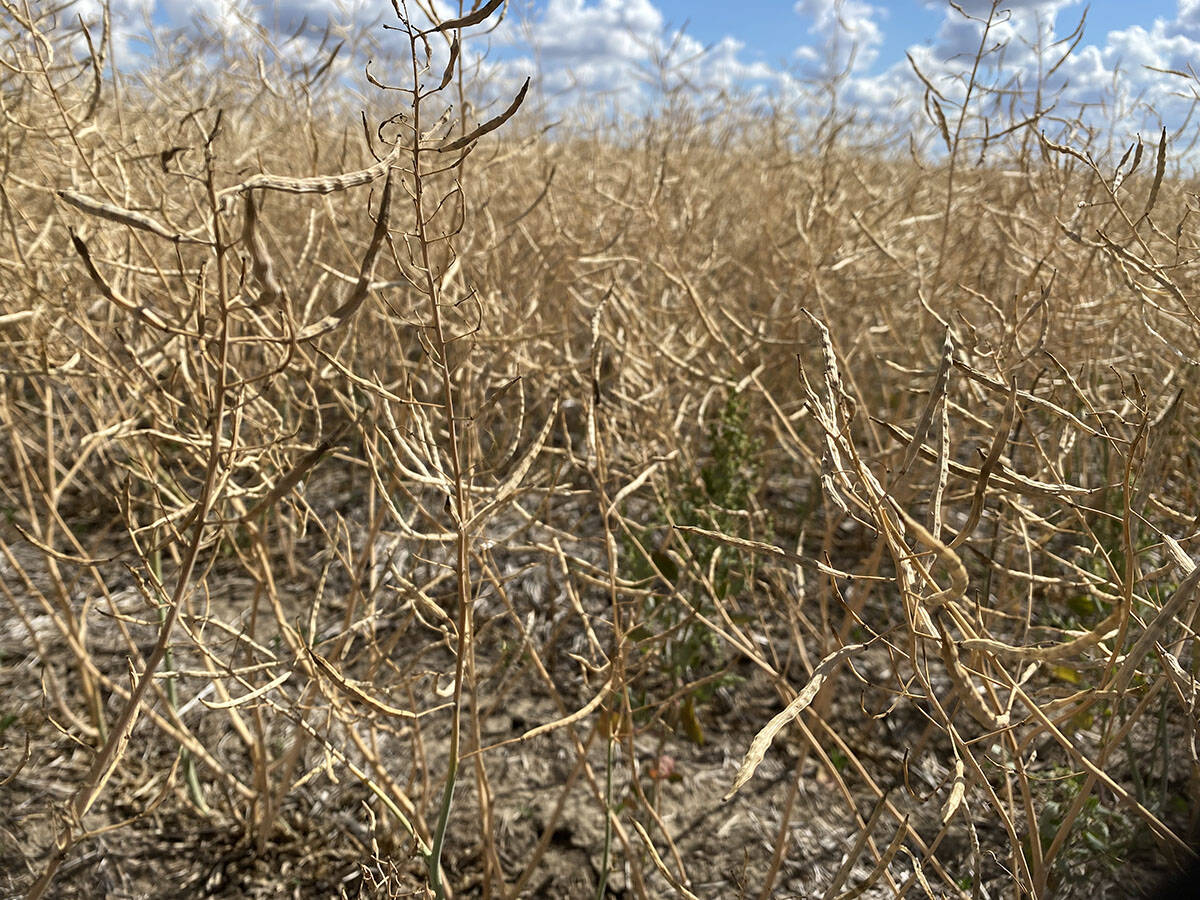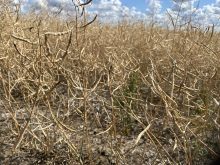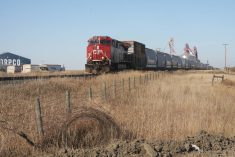Input costs; Esterhazy mill; Food safety; School boards; Job losses; Research needed
Input costs
Regarding the article by Paul Beingessner, (Cheap food not the answer, Opinion, June 25), he makes a number of very good points in the article.
The main stumbling block in keeping food affordable is the high cost of inputs. Over the last number of years, we have allowed the concentration of ownership in the fertilizer and seed business.
A few chemical companies gained control of seed production, gradually raising prices to astronomical levels.
Read Also

Crop insurance’s ability to help producers has its limitations
Farmers enrolled in crop insurance can do just as well financially when they have a horrible crop or no crop at all, compared to when they have a below average crop
In a few years hybrid seed went from under $2 per pound to almost $8 per lb.
There is little choice between suppliers because, like the petroleum companies, they follow each other’s pricing practices.
I seeded some canola this year. The treated seed cost me $392.50 per 50 lb. bag or $39.25 per acre. Then I have to pay for the right to use that expensive seed. This cost me $3.14 per lb., or $15.70 per acre.
Converted to price per bushel, which probably cost in the neighbourhood of $40 to produce, it’s costing me $550.
Nitrogen fertilizer cost me $50 per acre, sulfur $13 per acre, phosphate $22 per acre, potash zero per acre, chemical for weed control $15 per acre.
The total cost of seed, fertilizer and chemical is $155 per acre. Add the cost of owning or renting land, fuel at $3.50 per gallon and the cost of labour and machinery, you are looking at $250 per acre to produce and harvest a crop.
It’s plain to see the concentration of ownership has resulted in the concentration of huge profits.
– Roger Brandl,
Fort St. John, B.C.
Esterhazy mill
The announcement of the Esterhazy flour mill being declared a national historic site is the result of a group of hard working local people trying to keep a rural community alive.
This effort should be commended.
The sad part of this is, a value-added business that added jobs and value to Saskatchewan agriculture has gone into the archives of history thanks to the narrow-minded views of those who support the Canadian Wheat Board.
The same hard working and dedicated people who lobbied for the preservation of this site could have benefitted from a value-added business such as this thriving in their community.
This is a good announcement for a community’s hard work, but a very sad day for agriculture.
Thanks, CWB.
– Lorne Ridgway,
Avonlea, Sask.
Food safety
HACCP “have a cup of coffee and pray” meat inspection and “it looks good to me,” are the tools of Canadian Food Inspection Agency. They are not effective ways to detect microscopic pathogens.
HACCP (Hazard Analysis Critical Control Points) puts the fox in charge of the hen house. CFIA’s job is to deflect the heat off large corporations.
(It) kept everybody out of the listeriosis processor until their spin doctors could come up with a story that would fly. CFIA isn’t walking a tightrope, it is securely in large corporations’ back pocket.
Twenty-two people dying of listeriosis proved the system doesn’t work. …
– Ted McCaffrey,
Manitou, Man.
School boards
Since the provincial budget was unveiled on March 18, school boards across Saskatchewan have been working hard to ensure the new education and facilities funding model is one that works for students, communities, boards and the government.
The budget removed the authority of school boards to set local education property tax mill rates. Instead, the province will now set the mill rates.
School trustees in Saskatchewan have examined the questions, issues, challenges and opportunities resulting from this new world of education funding.
We know that whatever model is developed, it must be one that puts the learning needs of students first.
Before the budget was delivered, the Saskatchewan School Boards Association had established three working advisory groups to develop key recommendations on education funding, facilities funding and student learning.
The school division trustees and administrators serving on these working groups are helping to ensure that boards are active partners in determining how the future will unfold.
We were pleased to receive assurance from the ministry that trustees will be involved in shaping policy, legislation, the guiding principles and priorities around the new education funding model.
As well, the SSBA has been assured by the ministry that school boards will continue to be elected, and will continue to provide appropriate programming for students, hire teachers for the classroom, school and central office administrators, develop strategic plans and set the policies for the governance of the school division.
In effect, nothing will change regarding the role of the trustee except that of taxing powers.
We will be holding the government accountable to these promises and we will be closely monitoring and evaluating their actions as we move forward.
Our goal is to work in partnership with the ministry of education and other education stakeholders to ensure Saskatchewan’s children and youth receive the education funding they need and deserve.
– Roy Challis,
President,
Saskatchewan School Boards Association,
Regina, Sask.
Job losses
“As job toll mounts, investors are waking up to the size of the crisis,” Edmonton Journal, July 7.
Surprise, surprise! The economic recovery predicted by the financial gurus earlier this year has failed to materialize.
In their effort to promote a positive attitude, the corporate media continues to avoid calling the current economic situation a depression. The preferred language is recession.
But for the hundreds of thousands of Canadians who have lost their jobs because of factory closures and business failures, it’s more than a recession. It’s a genuine depression.
For the half million Canadians who have been living on credit and are in default with their mortgage or credit card payments, the senior citizens who have had their retirement savings plundered, those farmers who are facing bankruptcy because the price they receive for their commodities is lower than it costs to produce them, the word is depression.
Not all Canadians, however, are affected by the economic downturn.
Many corporate executives, both private and public, continue to receive their exorbitant salaries and lucrative bonuses.
Publicly funded bailouts enable them to continue living their lavish lifestyles.
So the rich get richer and the poor poorer, a natural progression as capitalism gradually collapses.
– William Dascavich,
Edmonton, Alta.
Research needed
(Saskatchewan premier) Brad Wall established the Uranium Development Partnership, UDP.
The mandate for the UDP is “to identify, evaluate and make recommendations on Saskatchewan-based value-added opportunities to further develop our uranium industry.”
This is not about reducing greenhouse gases, finding the most economical energy source or any other benefit the report may refer to.
The recommendations in the report are targeted at developing the uranium industry, plain and simple.
The UDP made 20 recommendations and the flagship recommendation is to build a $10 billion nuclear reactor in Saskatchewan.
The report goes on to say the private sector cannot build a reactor without government subsidies.
So is a nuclear reactor really the best way to spend billions of our tax dollars?
The only way to be certain is for the provincial government to take the next logical and prudent step, establish an expert renewable energy task force to carefully examine these growing energy sources.
Then we will have the information required to look critically at both nuclear and green energy and choose the future energy supply that makes the most sense.
It’s your tax bill that pays for these projects so let’s make sure they spend our money wisely. …
– James Zimmerman,
Meota, Sask.















